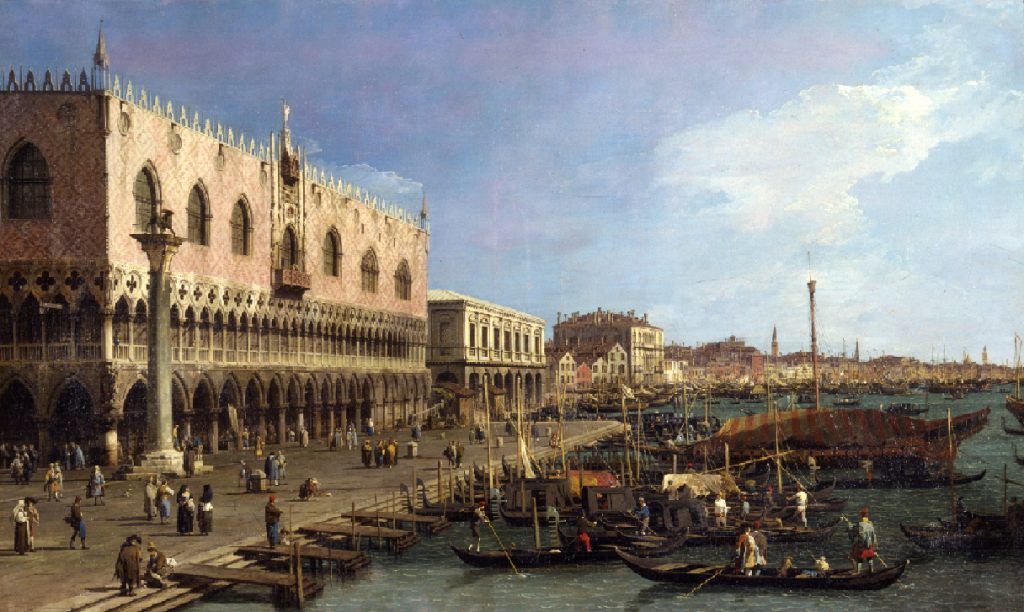Venice, Doge’s Palace
Sala del Magistrato alle Leggi
From 27 March to 21 July, 2024
The Ospiti a Palazzo (Guests at the Palace) series of exhibitions will continue in 2024 with a public display of paintings that exalt the role of Venice and its major figures in European history and culture.
From 27 March, on display in the Sala del Magistrato alle Leggi, Palazzo Ducale, The Pier towards Riva degli Schiavoni with the Column of Saint Mark by Antonio Canal, known as Canaletto (Venice, 1697-1768).

To Canaletto’s maturity is linked the painting The Pier towards Riva degli Schiavoni with the Column of Saint Mark (1735-1740), in which the perspective coherence of the spatial layout, the precise rendering of the architecture and the quality of the crystalline light, evoking the atmospheric dust in the distance, best summarize the results of his production. Every element of the narrative is subordinated to the rendering of space, to the vastness of the vision, to the celebration of Venice, as a city rising from the waters and therefore capable of arousing amazement and wonder.
The painting proposes one of the most successful themes of Canaletto’s production, a luxury “souvenir” for the young aristocrats, especially English, who came to Venice during their Grand Tour. A pendant of a pair depicting opposite views of St. Mark’s Basin, the canvas was purchased by Thomas Osborne (1713-1789), 4th Duke of Leeds. The crystalline light characterizing the scene seems to be affected by the new theories introduced in Venice by Francesco Algarotti, a friend of Joseph Smith, who in 1737 published Il Newtonianismo per le Dame, ovvero dialoghi sopra la luce e i colori, disclosing the theories on light of the great English physicist.
_
Antonio Canal, known as Canaletto (Venice, 1697-1768), came from a family of artists. His father and his brother were set painters, and with them Antonio collaborated on stage settings in Venetian theaters; this allowed him to study perspective and its optical “tricks”, fundamental for his subsequent career. In 1719 he decided to abandon the theater to dedicate himself to landscape painting.
His debut was explosive. Compared to his predecessors, his qualitative leap was immediately noticed by his contemporaries, and the resounding success of his views earned him important commissions.
The beginning of the partnership with Joseph Smith – banker, merchant and collector of the highest lineage –, who had been British consul in Venice since 1744, dates back to the early 1730s. A partnership destined to launch Canaletto definitively onto the international artistic panorama. Smith had twelve views of the Grand Canal painted by the artist on display in his palace at the Santi Apostoli, a veritable collection of samples for the guests and potential buyers who frequented his house. For purely promotional purposes, Antonio Visentini was commissioned to engrave them.